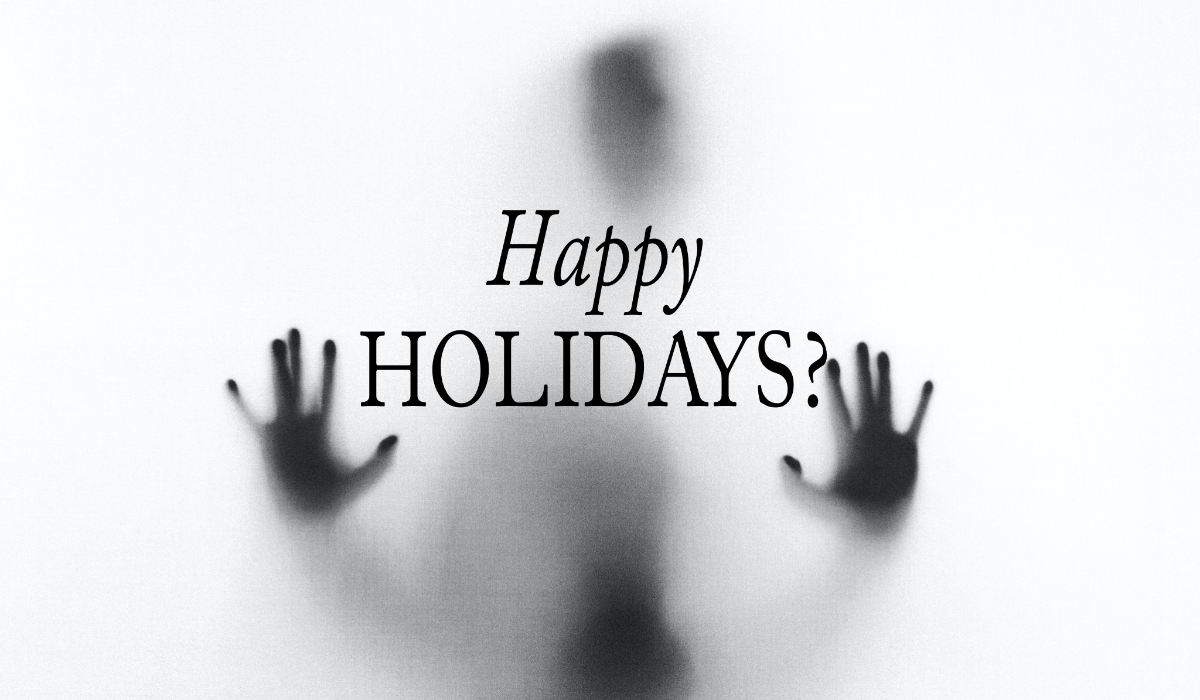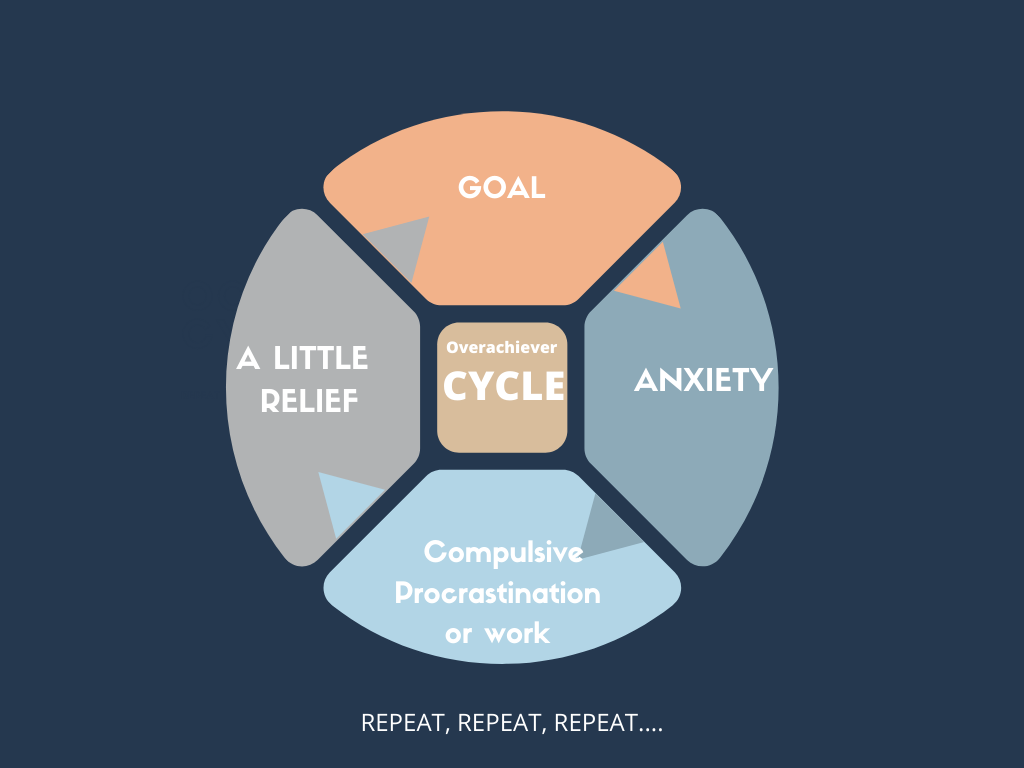Mental Health and the Holidays
Surviving the Holiday Stress (a.k.a. the Zombie Apocalypse) isn’t just a catchy phrase—it’s a real reflection of how the season can feel for many...
6 min read
KD HOLMES, LPC, EMDR CERTIFIED, BTTI TRAINED
:
Nov 24, 2020 9:30:53 AM

The holiday season can be a magical time filled with laughter, joy, and cherished traditions. However, beneath the surface of all the joy and celebration, it also brings its own set of unique challenges. Between the pressure to create the "perfect" holiday experience, financial stress, family dynamics, and the sheer busyness of the season, it’s no surprise that many people feel holiday emotional stress. Both in my office and personal life, I see the struggles that make this time of year particularly taxing for many individuals, even when they look forward to the holidays. Here are some practical stress relief tips.
I often describe this time as having the ingredients for a "perfect storm"-a convergence of factors like increased responsibilities, heightened expectations, and emotional triggers that can intensify stress and strain. For some, it may bring up unresolved family tensions. For others, it may deepen feelings of loneliness or sadness, especially if they've experienced loss or major life changes.
During these moments of heightened pressure and emotional intensity, it’s important to remember that help is available. Reaching out for professional support, like speaking to a therapist, can make a world of difference. A therapist can provide guidance, tools, and a safe space to help you navigate the challenges, weather the storm, and prevent things from escalating further. The holiday season doesn’t have to be perfect, but with the right support, it can still be meaningful and manageable.
Life doesn’t stop just because the holidays are here. Many of us enter this season carrying personal burdens that the added holiday stress magnifies. Here are some common struggles that contribute to this challenging mix:
The absence of a loved one is always heavy, but during the holidays, it feels especially poignant. Family traditions, holiday gatherings, and even simple memories can ignite fresh waves of sorrow, even years after the loss.
Unhealthy or ailing family members can cast a long shadow over celebrations. Whether it’s caring for someone or dealing with your own health, holiday expectations never seem to adjust.
Attending holiday functions without loved ones or feeling disconnected from family and friends can magnify feelings of isolation in a season focused on togetherness.
Whether it’s the pressure to appear joyful or the weight of personal struggles, mental health challenges don’t pause for holiday cheer.
The image of the “perfect holiday” doesn’t align with reality for many, creating disappointment or added stress when things don’t go as planned.
Starting fresh traditions or letting go of old ones can feel unnatural, even when circumstances force change.
When these individual struggles combine with the additional tasks, obligations, and expectations of the holidays, the perfect storm brews.
Though this whirlwind can feel all-consuming, practical steps can help you regain a sense of control. If you feel the storm escalating to a Category 3, 4, or 5 level, know that this is the time to seek external support-be it from a therapist or another trusted professional. For those at the earlier stages, here are some steps that can help you weather the storm and create moments of peace amidst the chaos:
It’s common to believe that seeking help equates to failure or inadequacy, but this couldn’t be further from the truth. Humans are interconnected beings designed to support each other. Asking for assistance, whether from a trusted friend, family member, or professional, is an act of strength, not weakness.
When reaching out, choose healthy individuals who can provide nonjudgmental and reliable support. Their warmth and understanding can offer solace, so you don’t have to weather the storm alone.
Traditions have a comforting way of grounding us. Even when you’re not in the mood, holding onto beloved rituals can provide a sense of normalcy amidst the unpredictability.
If you cook holiday meals every year, keep this tradition alive-even if the circumstances (or guest list) look different. Decorate your space, light some candles, cook that favorite family recipe, and savor the small but meaningful joys these traditions bring.
Social media can be a double-edged sword-while it connects us, it also has the power to sow discontent. Scrolling through curated snapshots of others’ perfect holidays can amplify feelings of inadequacy or frustration with your circumstances.
Protect your mental health by setting boundaries on your screen time, especially if you notice those feelings creeping in. Focus instead on mindful moments, your favorite book, or music that soothes the storm within.
Physical movement is a powerful antidote to emotional turbulence. High-intensity interval training (HIIT), biking, walking, or even light stretching can release endorphins, improve your mood, and provide a sense of accomplishment.
Exercise doesn’t have to mean hours at the gym. A brisk walk outside amidst the fresh winter air or a home yoga session in your living room can work wonders.
There is immense power in unburdening yourself to a trusted confidant. Whether you’re navigating grief, frustration, or anxiety, talking to someone allows you to verbalize emotions and process your experience.
If a supportive and nonjudgmental person is hard to find in your daily life, consider reaching out to a therapist. The simple act of sharing your story can be both cathartic and transformative.
Mindfulness anchors you in the present moment, providing a reprieve from the weight of past regrets or future worries. Even short, five-minute meditative practices can train your mind to redirect focus to the here and now.
Learn from the children in your life-they naturally live in the moment when they laugh, play, and explore their surroundings. Take this reminder and allow yourself moments of simplicity and connection to the present.
Gratitude may feel impossible in your darkest moments, but it has a remarkable capacity to reframe your perspective. Start small-write down one thing you’re grateful for each day. This could be as simple as a warm cup of tea or the sunrise you saw this morning.
However, if grief or anger feels like an impenetrable barrier, honor those feelings first. Venting, journaling, or seeking out the support of a trusted guide can help clear the path toward gratitude.
Neurodivergent coping strategies are tools and techniques designed to help manage sensory input and promote a sense of calm and focus. These strategies can include using fidget toys to channel restless energy, incorporating movement breaks into your day, wearing noise-canceling headphones to reduce overwhelming sounds, or using weighted blankets and compression items for a soothing, grounding effect. Essentially, they involve anything sensory that can create comfort and induce positive feelings. These small adjustments can make a big difference in managing stress and improving daily well-being. It can regulate you during an overwelming time.
Consider the role that your sensory load plays in affecting your mental health. Sensory overload occurs when your brain is bombarded with too much stimulation, which can increase irritability, depression, and anxiety. This might include exposure to loud noises, bright lights, crowded spaces, or even constant multitasking. To counteract this, it’s important to give yourself time to rest and recover in a low-stimulation or sensory-free environment. A short nap, spending time in a quiet, dark space, or simply pausing to rest when you feel tired can have powerful effects on your overall well-being. Small, intentional breaks to reduce sensory input can help reset your mind and body, leaving you feeling calmer and more refreshed.
How could I forget one of the most important tools: the power of saying no. When dealing with toxic or challenging family dynamics, remember that "no" is a complete sentence. You don’t owe anyone an explanation for your decision. Whether you choose to be honest, offer an excuse, or keep it simple, the key is recognizing your boundaries and standing firm. Identifying and holding onto your "no" is an act of self-respect, empowerment, a tool of self preservation.
Life doesn’t always go as planned, and the holidays, while often associated with joy and togetherness, can also bring trials that challenge our emotional and mental balance. For many, this time of year can shine a light on feelings of loneliness, grief, or unmet expectations. While emotional pain is a natural part of life, suffering often comes from how we choose to respond to these challenges. It’s in our response that we find the opportunity for relief.
Creating stability in your actions-whether by maintaining traditions that bring comfort, seeking support from friends, family, or professionals, or practicing mindfulness and body awareness techniques-can provide a foundation of emotional steadiness during turbulent times. These don’t have to be grand or overwhelming gestures. The power often lies in small, intentional steps that help ground you, even when the chaos of life feels overwhelming.
Remember, you’re not alone in facing these challenges. If you or someone you know might benefit from the insights shared here, please don’t hesitate to pass this message along. Asking for help is not a sign of weakness or failure—it’s an act of courage and a lifeline that opens the door to connection and healing.
We are not changed solely by thinking about our struggles. Change comes from intentional action, from choosing to take even the smallest step toward steadier ground. Be the sailor who steadies their course in the storm. Reach out, take that first step, and remind yourself that you don’t have to weather this alone. Help is available, one step at a time.

Surviving the Holiday Stress (a.k.a. the Zombie Apocalypse) isn’t just a catchy phrase—it’s a real reflection of how the season can feel for many...

Many people are curious what is counseling? I begin by trying to understand someone’s struggles, I often come back to one question: What is it like...

One of the fundamental pillars of my therapeutic approach focuses on adults who find themselves entangled in the intricate web of anxiety and...